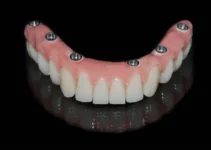Experiencing a toothache can be intensely uncomfortable, prompting the search for quick and effective remedies. Clove oil, derived from the clove plant, has been heralded for centuries for its pain-relieving properties. Containing eugenol, a natural anesthetic and antiseptic, clove oil can temporarily reduce toothache pain and inhibit infection. Application involves placing a small amount on a cotton ball and dabbing it on the affected area, offering a natural alternative to over-the-counter pain medications. However, it’s crucial to use clove oil sparingly and consult a dentist if pain persists, as it is not a substitute for professional dental care.
Benefits of Using Clove for Toothache Relief
Clove, a commonly used spice in culinary traditions around the world, has been utilized for centuries as a natural remedy for toothaches. The application of clove oil or whole cloves offers a plethora of benefits for dental pain. This is largely due to the active compound eugenol, which is known for its medicinal properties. Clove provides a holistic approach to toothache relief, which is an appealing option for those seeking alternatives to synthetic medications.
One of the primary advantages of using clove for toothache relief is its immediate effect on pain reduction. The natural compounds in clove can provide quick and effective relief, often within minutes of application. Furthermore, clove is widely accessible and cost-effective, making it an ideal first-line treatment for minor dental discomfort. The versatile nature of clove means it can be used in various forms, such as oil, powder, or whole cloves, offering flexibility in its application.
Analgesic Properties
The analgesic properties of clove are primarily attributed to eugenol, a compound that acts as a natural anesthetic. Eugenol works by numbing the nerves in the affected area, thereby reducing the sensation of pain. Studies have shown that eugenol is effective in managing dental pain, making clove a reliable natural alternative to over-the-counter painkillers.
In addition to its numbing effect, eugenol also possesses anti-inflammatory properties. This dual action not only alleviates pain but also reduces the underlying inflammation that can exacerbate dental issues. The reduction in inflammation can help in preventing further damage to the gums and surrounding tissues, promoting overall oral health.
When using clove for toothache relief, it is recommended to apply clove oil directly to the affected area using a cotton swab. For those who prefer a more traditional approach, chewing on a whole clove can also be effective. It’s essential to ensure that the application is targeted and not excessive, as high concentrations of eugenol can cause irritation.
Antibacterial Benefits
Beyond its pain-relieving capabilities, clove also offers significant antibacterial benefits. The antimicrobial properties of clove make it effective in combating the bacteria that cause dental infections and tooth decay. This makes clove not only a treatment for symptoms but also a preventive measure against further dental issues.
Research has demonstrated that the essential oils in clove can inhibit the growth of various bacteria strains found in the oral cavity. This includes Streptococcus mutans, a primary contributor to tooth decay. By reducing bacterial load, clove helps in maintaining better oral hygiene and preventing the progression of dental diseases.
The use of clove as an antibacterial agent is especially beneficial in preventing secondary infections that can arise from an untreated toothache. For maximum benefit, it is recommended to use clove in conjunction with good oral hygiene practices, such as regular brushing and flossing. This holistic approach ensures a healthier mouth and reduces the likelihood of recurrent dental pain.
Incorporating clove into your dental care routine can provide comprehensive benefits, from immediate pain relief to long-term antibacterial protection. By understanding the multifaceted properties of clove, you can make informed decisions about its use for dental health.
For more insights into natural remedies and holistic dental care, explore our other articles. You’ll discover a wealth of information designed to help you maintain optimal oral health naturally.
How to Use Clove for Toothache
Toothaches can be extremely painful and disruptive, impacting your daily activities and overall quality of life. Among various home remedies, clove stands out as a potent and time-tested option for alleviating tooth pain. Clove contains eugenol, a natural anesthetic and antibacterial compound that can provide relief from pain and inflammation. In this article, we will explore different methods of using cloves to combat toothache effectively.
Whether you choose to use clove oil, whole cloves, or clove paste, each method has its unique applications and benefits. Below, we delve into detailed instructions on how to use each of these forms for maximum relief.
Clove Oil Application
Clove oil is perhaps the most concentrated and effective form of this natural remedy. To apply clove oil for toothache:
- Soak a cotton ball: Dip a small cotton ball into clove oil. Ensure that the cotton ball is thoroughly soaked but not dripping.
- Apply to the affected area: Place the soaked cotton ball directly on the painful tooth or the surrounding gum. Hold it in place for about 15 minutes.
- Rinse your mouth: After removing the cotton ball, rinse your mouth with warm water to remove any residual oil.
Clove oil can be quite potent, so it’s essential to use it sparingly to avoid potential irritation. If you experience any burning or discomfort, dilute the clove oil with a carrier oil such as olive oil before application.
Whole Cloves
If you don’t have clove oil at hand, whole cloves can serve as an excellent alternative. Here’s how to use them for toothache relief:
- Select a whole clove: Choose a fresh, whole clove from your spice cabinet. Ensure it’s not broken or crushed.
- Place the clove on the aching tooth: Position the whole clove between the tooth causing pain and your cheek.
- Keep it in place: Hold the clove in place by gently biting down on it. Let it sit for 20-30 minutes.
The eugenol in the clove will gradually seep into the affected area, providing pain relief. You can repeat this process several times a day, but be cautious of overuse, as it may cause discomfort or irritation.
Clove Paste
Another effective method is to make a clove paste. This can be particularly useful for localized application and prolonged relief. Here’s how to prepare and use clove paste:
- Grind the whole cloves: Use a spice grinder or mortar and pestle to grind a few whole cloves into a fine powder.
- Mix with a carrier oil: Combine the clove powder with a small amount of carrier oil, such as coconut oil, to form a paste.
- Apply to the affected area: Using a clean fingertip or cotton swab, apply a small amount of the paste directly to the aching tooth or surrounding gum.
- Let it sit: Allow the paste to sit for 15-20 minutes before rinsing your mouth with warm water.
Clove paste offers a concentrated application that can provide sustained relief from toothache. This method is particularly useful for those who prefer a more localized and controlled application.
In conclusion, cloves offer a variety of methods to help alleviate toothache pain naturally. Whether you opt for clove oil, whole cloves, or clove paste, each approach leverages the powerful properties of eugenol to provide relief. For more in-depth articles on dental health and other natural remedies, be sure to explore our other resources.
Precautions and Side Effects
When considering dental implants and bone regeneration procedures, it is crucial to be aware of the necessary precautions and possible side effects. While these procedures are generally safe and effective, understanding the potential risks can help patients make informed decisions and ensure a smooth recovery process.
Patients should discuss their medical history and any current medications with their dentist. This includes information about allergies, previous surgeries, and any underlying health conditions. Being transparent with your healthcare provider enables them to tailor the treatment plan to your individual needs and minimize the risk of complications.
It is also essential to adhere to the post-operative care instructions provided by your dentist. Proper care and hygiene play a significant role in the success of implantology and bone regeneration treatments. By following these guidelines, patients can reduce the risk of infection and other complications.
Possible Allergic Reactions
Allergic reactions in dental implantology are relatively rare, but they can occur. Some patients may experience allergies to the materials used in implants, such as titanium or other metals. Signs of an allergic reaction can include:
- Swelling
- Redness
- Itching
- Rash
In more severe cases, an allergic response might lead to implant failure or delayed healing. If you suspect an allergy to any material used during your dental procedure, notify your dentist immediately so they can take appropriate action.
Another potential allergen is the local anesthetic used during the procedure. Some individuals may be allergic to certain anesthetic agents, which could result in symptoms such as difficulty breathing, swelling, or hives. Your dentist can perform a patch test or use an alternative anesthetic if you have a known allergy.
Interactions with Medications
Certain medications can interact with the materials and processes involved in dental implants and bone regeneration. For instance, patients taking blood thinners like warfarin are at a higher risk of prolonged bleeding during and after the procedure. It is essential to inform your dentist about all medications you are taking, including over-the-counter drugs and herbal supplements. Some antibiotics may also interfere with the healing process or increase the likelihood of an infection. Your dentist may need to adjust your medication regimen before, during, or after the treatment to optimize outcomes and reduce risks.
Additionally, medications such as bisphosphonates, often prescribed for osteoporosis, can negatively impact bone healing and integration with the implant. Your dentist might recommend pausing certain medications or taking other precautions to ensure a successful procedure.
Overuse Warnings
While dental implants are a durable and long-term solution for missing teeth, overuse or improper use can lead to complications. Chewing extremely hard foods or using your teeth as tools can exert excessive pressure on the implant, potentially causing it to fail.
Patients should also be cautious about overuse of non-prescription painkillers post-surgery. Over-the-counter medications like ibuprofen and acetaminophen can alleviate pain, but excessive use can lead to side effects such as gastrointestinal issues or liver damage. Always follow your dentist’s recommendations regarding pain management.
Emphasizing the importance of regular dental check-ups post-procedure is crucial. Routine visits allow your dentist to monitor the condition of your implant and address any issues proactively. Neglecting these follow-ups can result in unnoticed complications that might require more extensive treatment later.
Scientific Studies on Clove for Dental Pain
Clove, a common spice known for its aromatic properties, has been extensively studied for its potential benefits in managing dental pain. The use of clove for dental issues dates back centuries, and modern science has been keen to explore the validity of these traditional practices. Numerous scientific studies have focused on the efficacy of clove in alleviating dental pain, providing evidence-based insights into its medicinal properties.
Key active compounds in clove, such as eugenol, have been identified as possessing strong analgesic and anti-inflammatory properties. These compounds are believed to block pain signals and reduce inflammation, making clove a valuable tool in dental care. Further research has explored various forms of clove application, including essential oils, clove extracts, and topical treatments.
Research Findings
One significant study published in the Journal of Dentistry found that clove essential oil was as effective as benzocaine, a common local anesthetic, in managing pain from dental procedures. Participants reported a substantial reduction in pain, highlighting clove’s potential as a natural alternative to conventional pain relief methods. Another study conducted by the International Journal of Dentistry investigated the antimicrobial properties of clove. The results indicated that clove oil exhibited strong antibacterial activity against common oral pathogens, helping to prevent infections that can exacerbate dental pain. This dual action of pain relief and antimicrobial protection makes clove a promising option for dental health.
Research has also delved into the safety and potential side effects of clove use in dental applications. While generally considered safe when used appropriately, clove oil can cause allergic reactions or irritation in some individuals. It is crucial to use diluted forms and follow professional guidance to minimize any adverse effects.
Overall, scientific studies support the efficacy of clove in managing dental pain and highlight its potential role in modern dental practices. Future research aims to further elucidate the mechanisms behind clove’s analgesic properties and to optimize its use for safe and effective dental care.
If you found this article insightful, consider exploring our other articles on natural remedies for dental health and advancements in dental pain management.
Common Questions About Using Clove for Toothache Relief
Clove has been used as a natural remedy for toothache for centuries. Below, we clarify some common questions regarding its effectiveness and how to use it safely.
How does clove help in relieving toothache?
Clove oil contains eugenol, a natural anesthetic and antiseptic compound that can help to numb pain and reduce inflammation in the affected area. Applying a small amount of clove oil directly to the tooth or gums can provide temporary relief from pain and discomfort associated with toothaches.

My name is Salman Kapa, a 73-year-old expert in bone regeneration and dental implantology. With decades of experience in the field, I am dedicated to advancing our understanding of oral health and hygiene. Through my research and writing, I aim to contribute to the development of innovative solutions in dental care.




